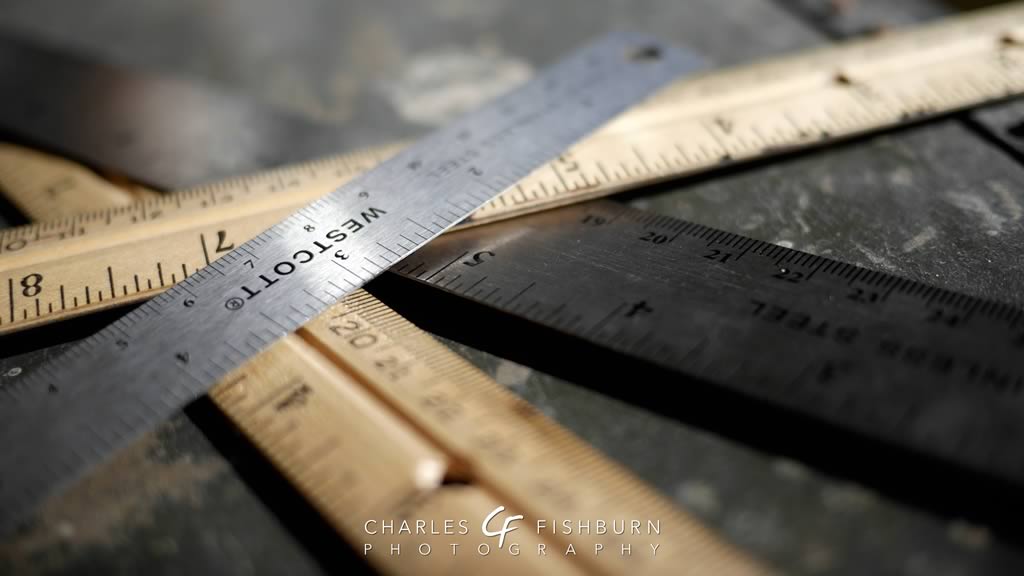
On the Pronunciation of the Word "Kilometer"
I originally titled this article "I Say 'Kilometer' and You Don't". Of course, you might only catch the meaning of that if you heard me read the title aloud. If you just read the title, you might think I was actually going to talk about the use, or lack thereof, of the metric system. I'll save that for another day because in all honesty, I rarely use the metric system myself at this point despite the fact that I rather like it. For now, let's get back to my original purpose.
I've heard that English is often regarded as one of the most difficult languages to learn for non-native English speakers simply because of the wide variety of inconsistencies in spelling and pronunciation between words. The comedian Gallagher had a great bit he performed somewhat related to that topic, pointing out the inconsistencies of similarly-spelled words like bomb, comb, and tomb, or similarly-prounouced words like bum, come, and dumb.
Side note: Just to be clear, I'll be using ā, ō and ē to represent the long vowel sounds of a, o and e, respectively. The bars over the characters are a bit small and can be difficult to see. But I hope you can see them well enough. Also, note that the apostrophe at the end of a syllable signifies the primary stress of the word.
Spelling aside, there are many words that American people pronounce differently than, say, British people, like tomato as "ta-mā'-tō" or "ta-mah'-tō". Even across a single country, regional accents make the same word sound different. For example, many people pronounce words like hard and park with a harder "r" while others pronounce them with a softer "r" like "hahd" and "pahk" (think Boston or Britain).
But let's talk about a word that, despite its close association with other words that share the same base, is mispronounced on both sides of "the pond" and throughout the world:
Kilometer
How do you pronounce kilometer? Odds are very good that you, like millions (if not more) around the world, pronounce it "ki-lah'-meh-ter". You also probably pronounce speedometer as "spē-dah'-meh-ter". If you're a pilot, you say "al-ti'-meh-ter" when talking about an altimeter. You can pick several other -meter words that follow the same pronunciation pattern: thermometer, barometer, accelerometer, pedometer, anemometer, Baumanometer® or sphygmomanometer. Their common thread is that we typically emphasize the syllable immediately preceding the "meter", and we pronounce the "meter" part as "meh-ter".
At this point, I'm sure you're wondering what sort of pedantry it is upon which I've fixated. Sometime last year, I discussed this specific word with a co-worker who said it doesn't matter how we pronounce kilometer so long as we're understood. To some extent, that's true. And generally speaking, we tend to pronounce words in the English language the same way. But far and wide, kilometer is one word that breaks from a very specific pattern, and I'm not entirely certain why.
In the list of words above, you may have noticed that other than kilometer, which is a measurement—a unit of distance, all of the other words are forms of gauges that actually do the measuring. Why didn't I include other distance units in that list? The answer is very simple: almost without fail, the English-speaking population pronounce the other units-of-distance -meter words in the same, consistent manner. In fact, there are other kilo- measurement words that we pronounce consistently as well. Say the following words: meter, centimeter, millimeter, nanometer, kilogram and kiloliter. We pronounce the prefix consistently (regardless of the unit) with the primary emphasis on the first syllable, and we pronounce the "meter" portion as "mē'-ter", not "meh-ter". We say "sent'-i-mē-ter" (centimeter) and "mil'-i-mē-ter" (millimeter), not "sen-ti'-meh-ter" and "mi-li'-meh-ter". We say "kil'-a-gram" (kilogram) and "kil'-a-lē-ter" (kiloliter), not "ki-lah'-grim" and "ki-lah'-leh-ter". So why do so many of you say "ki-lah'-meh-ter" and not "kil'-a-mē-ter"?
One of the benefits of the metric system's distance measurements is the consistency of its base-10 nature: 10 millimeters equals 1 centimeter; 10 centimeters equals 1 decimeter; 10 decimeters equals 1 meter; 10 meters equals 1 decameter; 10 decameters equals 1 hectometer, and 10 hectometers equals 1 kilometer. (Yes, you can go smaller or larger with those, but I'll spare you that further tedium.) Contrast this to the chaotic-by-comparison imperial system we use in which 12 inches is 1 foot; 3 feet is one yard; and 1,760 yards (or 5,280 feet) is 1 mile. Given the intentional consistency of the metric system, why do so many people break the pattern and pronounce kilometer incorrectly? I don't know. It's possible people don't think of words in groups and therefore don't see their common discrepancy between the distance unit words. It's also possible that since we have both "mē-ter" and "meh-ter" words, most people don't give a second thought to whether a word is more correct one way or the other.
The fact that so many people pronounce it that way doesn't make it correct. I strongly encourage you – especially if you are a mathematician, scientist, or teacher – to be consistent and pronounce kilometer like any other meter-based unit of measurement, then reserve the "meh-ter" pronunciation for gauge words.
Kilometer (kil'-a-mē-ter).
Now you know.
Change your mind. Tell your friends.

